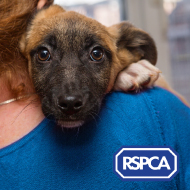
Reassures pet owners on safety measures
The RSPCA has said that it is continuing to rescue and rehome animals despite the COVID-19 outbreak and has put contingency plans in place in preparation for the weeks and months ahead.
Chief executive, Chris Sherwood, said: "Thanks to our amazing, dedicated and professional team of staff and volunteers, the RSPCA is still rescuing and rehoming animals in these difficult times.
"We're having to change the way we work, but please be assured we're doing everything we can to make sure that we get help to the animals most in need.
"There is a great deal of anxiety, worry and concern at the moment. Being around animals can bring great pleasure, companionship and mental health benefits, so we hope people will draw comfort from spending time with their pets and watching wildlife to help them through the weeks and months ahead."
The RSPCA declared that its national animal centres and hospitals are still working to help and rehome animals, but are restricting public access and implementing extra hygiene measures to protect staff and clients.
Frontline officers are regularly hand washing before and after handling animals, as well as avoiding entering premises and asking people to bring animals to the door where possible.
Much of the RSPCA’s work, including clinics, rehoming centres, charity shops and the 24-hour rescue line relies on volunteers. It confirmed that there may be changes to services due to lower staff numbers than normal and asked for the public’s patience and understanding during this time.
Mr Sherwood concluded: "I would ask for people to bear with us over the coming weeks. It's great to see communities rallying around to support each other during this time and it would be good to see that community spirit extend to local RSPCA animal centres, branches and hospitals."
For more information please visit www.rspca.org.uk



 FIVP has shared a survey, inviting those working in independent practice to share their views on the CMA's proposed remedies.
FIVP has shared a survey, inviting those working in independent practice to share their views on the CMA's proposed remedies.